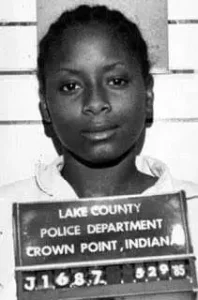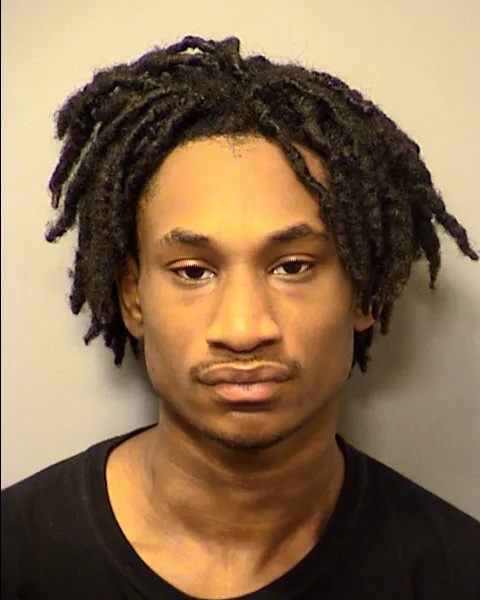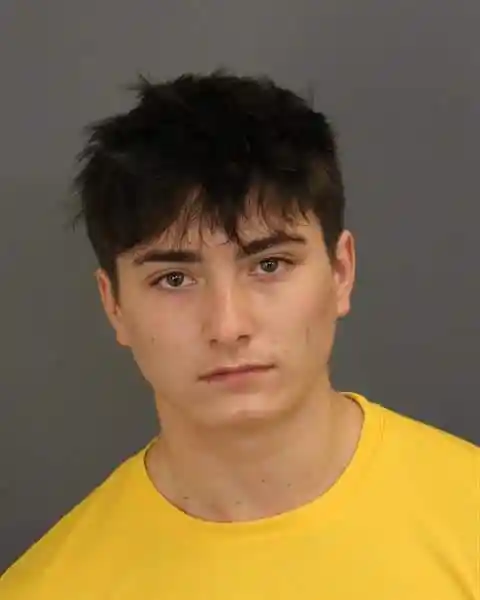Paula Cooper Murders Elderly Woman
Paula Cooper was a fifteen year old from Indiana who would murder an elderly woman
According to court documents Paula Cooper and three accomplices would attack an elderly woman who Cooper would stab more than thirty times. The girls would get ten dollars from the robbery.
Paula Cooper would be arrested, convicted and sentenced to death. However later her death sentence was commuted to life in prison.
Paula Cooper would be released from prison in 2013. In 2015 she would take her own life
Paula Cooper Photos

Paula Cooper FAQ
When was Paula Cooper released from prison
Paula Cooper was released from prison in 2013
When did Paula Cooper commit suicide
Paula Cooper would take her own life in 2015
Paula Cooper Suicide
The campaign to save the life of Paula Cooper, who at 16 became the youngest Death Row inmate in Indiana, attracted international attention after she pleaded guilty to murder in 1986.
Her successful appeal eventually led to her June 2013 release after serving 27 years in prison.
Paula Cooper: The Executioner Within
But on Tuesday, Cooper’s story came to a somber end in Indianapolis. Police say she was found dead, apparently by her own hand.
Cooper, 45, died just after 7:15 a.m. from a self-inflicted gunshot wound to the head in the 9500 block of Angola Court, according to Indianapolis Metropolitan Police. Marion County coroner’s office on Wednesday ruled her death a suicide
A police report said the responding officer “located the victim lying next to a tree on the west lawn area of the ITT parking lot.” A Bryco .380-caliber handgun was in the victim’s lap and a black Toyota Corolla registered to Cooper was parked nearby.
“It’s an unusual ending to a tragic case,” said Indianapolis attorney Jack Crawford, who was the Lake County prosecutor when Cooper was charged. “I’ve been involved in a lot of cases in my life, and nothing compared to this case.”
Cooper became infamous in 1985 when at 15 she was charged with murder in the stabbing of 78-year-old Ruth Pelke during a robbery. Law enforcement identified Cooper as the ringleader in the slaying. She and three friends went to Pelke’s Gary home armed with a 12-inch butcher knife.
An investigation showed Pelke allowed the teens into her home after they said they were interested in Bible study lessons. But the scene turned grisly when they knocked Pelke to the ground and Cooper climbed on top of her.
“Paula Cooper got on top of her and kept saying to her, and this is her own admission, ‘Where’s the money, bitch?’” Crawford told The Indianapolis Star during a 2013 interview. He said Cooper began slicing Pelke with the butcher knife. The woman’s last words were the Lord’s Prayer.
The other teens involved were sentenced to lengthy prison terms on robbery or murder charges: 25, 35 and 60 years. But when Paula Cooper was sentenced, the judge invoked capital punishment.
The decision led to an immediate shift in public outrage. Paula Cooper was among only a handful of women in Indiana to receive the death penalty, and she was the youngest in the state’s history. At the time of her sentencing, she was also the youngest Death Row inmate in the United States.
The 30th anniversary of the murder was just two weeks ago.
Bill Pelke, a grandson of the slain Bible teacher, told The Star on Tuesday that he forgave Paula Cooper, who said she had been abused as a child. He said he visited her in prison 14 times. They exchanged emails almost weekly the last two years of her incarceration.
In one of their last messages, Paula Cooper told Pelke her time in prison was about up and she was scared. She had spent most of her life incarcerated. She had never written a check or paid a bill.
There was so much, Pelke said, that she didn’t know how to do.
He offered to help. But the two talked only once after she was released.
Pelke said he was devastated to hear of Cooper’s death.
“We had wanted to do things together around restorative justice and the death penalty,” he said. She wanted to be an example for other young people who have been abused.
“She wanted to tell them, ‘Look, this is how I responded to the hate and anger, and look at all the trouble I got into,’” he said. “She wanted to give them alternatives so they didn’t end up like her.”
Cooper’s pursuit of an appeal made her world renowned. According to the Indiana Historical Society, the Indiana Supreme Court received 2 million signatures in support of her appeal. Pope John Paul II sent an emissary to Crawford’s office and wrote an appeal to then-Gov. Robert Orr. The United Nations received a million signatures in support of overturning Cooper’s death penalty.
Two years after Cooper’s sentencing, the U.S. Supreme Court, which was already considering the issue of imposing death sentences on teens, ruled it was unconstitutional to execute anyone who was younger than 16 at the time the person committed a crime. Indiana lawmakers later raised the minimum age from 10 to 16 in 1989 and again to 18 in 2002.
“A lot of things have changed,” Crawford said. “It was a truly unique case.”
The Indiana Supreme Court commuted Cooper’s death sentence and sent her to prison for 60 years. She served 27 years of that sentence until her 2013 release.
Kevin Relphorde, who served as Cooper’s public defender, said Tuesday he was stunned by the news. He said he hadn’t spoken to Paula Cooper in years and had lost track of her.
“Paula was a good person,” he said. “She was very misunderstood. She went through a lot at the hands of her father, with physical abuse, and I think that led to the situation with Mrs. Pelke.”
Her time at the Rockville Correctional Facility began with troubles. In 1995, she was sentenced to three years of solitary confinement for assaulting a prison guard.
“I was very bitter and angry, so I was in a lot of trouble. I hated it. But I learned to adapt eventually,” she said in a 2004 interview with The Star.
Paula Cooper soon began pursuing educational opportunities, first earning her GED, then a vocational degree, and in 2001 a bachelor’s degree. Beginning in 2011, she worked as a tutor.
“She couldn’t deal with the outside world,” speculated Warren W. Lewis, a retired dean and professor at Martin University who taught Cooper at the Indiana Women’s Prison.
“I knew her well, and I loved her,” Lewis said Tuesday. “She was practically a child, and she shouldn’t have been treated like an adult.”
Lewis said he taught Paula Cooper and other female inmates a college-level Introduction to Philosophy class. He had not had any contact with her for several years.
“My goal,” he said, “was to work up to a level of trust to ask, ‘Why are you in this prison?’”
When he reached that point with Cooper, Lewis said, the young prisoner told him no one had ever asked her that question.
“I really don’t know why I did that” was the best she could offer in regard to her role in the killing.
Like a lot of prisoners, Paula Cooper had difficulty connecting the cause and effect of crime -– “there’s a disconnect,” Lewis said.
Lewis said he took her death as a personal failure.
“My question,” he said, “is what happened to her once she got out?”
It’s unclear how Cooper was spending her time since she was released. Rhonda Labroi, her sister, declined to comment about Cooper’s death Tuesday.
“It’s just amazing that after all those years of incarceration that she would be released and then something like this would happen,” said Relphorde, who added that Paula Cooper was remorseful about the killing. “She was willing to pay her debt to society.”














